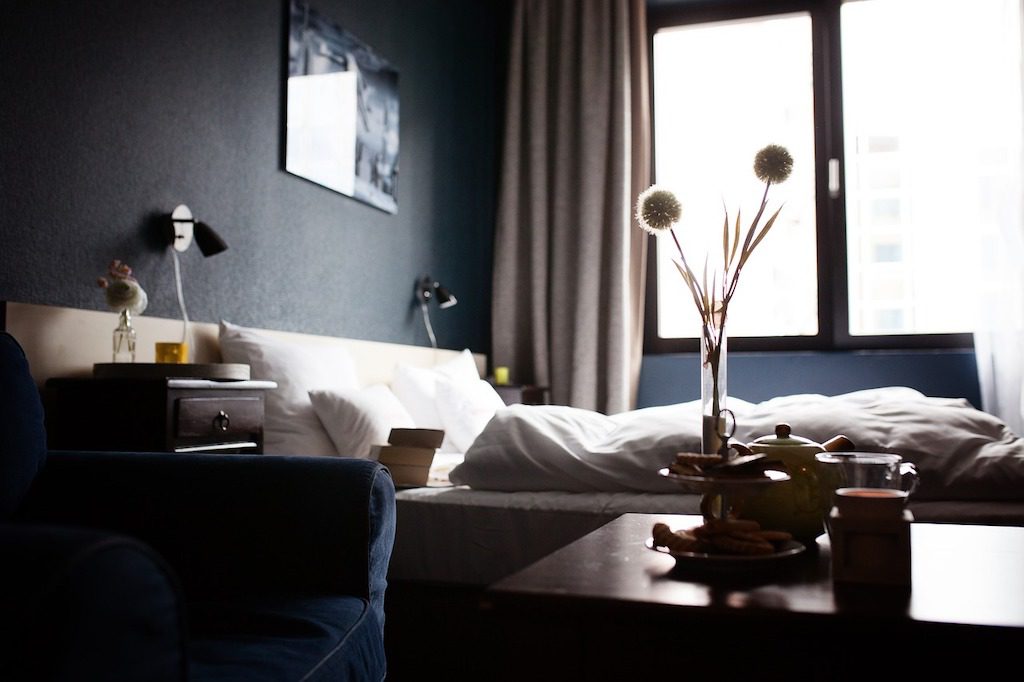Skift Take
The U.S. hotel sector continues to add jobs since its worst-performing month of April, but there are likely a rough few months ahead for unemployment until a vaccine is in widespread distribution.
The U.S. hotel sector continues to see falling unemployment the further it gets from the peak summer travel season. But winter is coming — and not many are rejoicing.
The accommodation sector’s unemployment rate fell to 21.5 percent in November, the U.S. Bureau of Labor Statistics reported Friday. That figure is below the 24.6 percent seen the prior month and well below the nearly 49 percent seen in April, the first full month of the pandemic in the U.S. But hotel unemployment remains significantly out of step with the national average, which fell to 6.7 percent.
The Labor Department noted the overall hospitality sector’s unemployment rate “changed little” last month, as it only added 31,000 jobs.
“While the overall unemployment rate ticked down from October’s 6.9 percent, hospitality sector unemployment is still at an absurd and unacceptable rate,” said Evan Weiss, chief operating officer at LW Hospitality Advisors. “Ultimately, with still uneven and — candidly — unpredictable and sometimes even illogical travel restrictions from state to state, and even municipality to municipality, we will continue to have a confused customer base, which is unwilling and/or unable to travel.”
While the hotel industry optimistically welcomed the news coronavirus vaccines will likely begin distribution later this month, it also has to grapple with the reality the medical breakthrough’s positive impact won’t be felt for months.
The positive unemployment data comes at a time when the hotel industry is one of many lobbying Congress to pass another round of coronavirus economic relief. The hotel industry will want politicians to look at more than declining unemployment numbers.
Hotel executives warned investors during third quarter earnings reports the coldest months of the year were likely to be brutal financially — even if hotel performance hadn’t yet correlated to the rising case count.
“All I can tell you is that based on what we are seeing in terms of the virus progression, we have to anticipate it’s going to impact demand in some way, shape, or form,” Hyatt CEO Mark Hoplamazian said on an investor call last month. “Have we seen evidence of that so far? No. Are we anticipating that we should? Yes.”
Coronavirus case counts continue to soar across the U.S., and the Centers for Disease Control and Prevention warned Americans to avoid travel for Thanksgiving — normally the busiest travel week of the year. While airports were busy, hotels were not. U.S. hotel occupancy for the week ending Nov. 28 was 36.2 percent — the lowest level seen since May, according to STR.
The CDC issued another warning this week against winter holiday travel.
“A major takeaway from November’s jobs report, almost nine months into this pandemic, is that while we have come a long way, and the vaccine distribution is beginning, it cannot come fast enough for the frontline and even corporate workers of the hospitality space,” Weiss said. “While I certainly have no crystal ball as it pertains to jobs creation or the recovery, the winter months may see an even greater job loss for our hospitality sector, with travel restrictions firmly in place, uneven standards throughout the U.S., and the increasingly cold weather in much of our nation.”
Have a confidential tip for Skift? Get in touch
Tags: coronavirus, coronavirus recovery, economic stimulus, hyatt, labor
Photo credit: The hotel sector continues to see falling unemployment, but analysts are cautious about winter months and rising case counts. ManuelaJaeger / Pixabay
